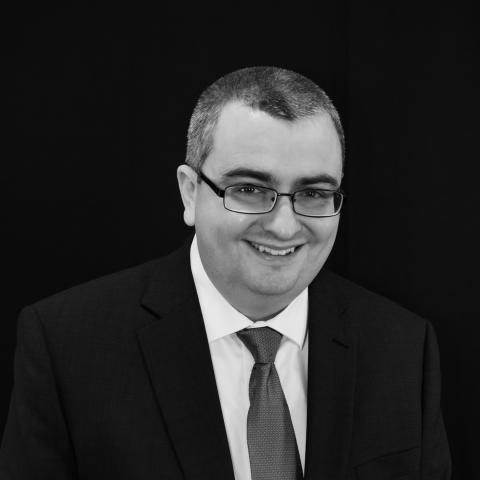The security situation in Ecuador dramatically worsened in early January as major criminal groups turned to large-scale attacks against the government – and each other – putting civilians at risk of being caught up in the violence. The crisis has prompted the government to declare a state of emergency and task the military with fighting crime, moves that sparked a violent backlash by organized crime groups. Though the military may be able to score some early victories against the groups and establish some semblance of order, whether such victories are sustainable remains an open question.
Escalating Gang Violence Prompts State of Emergency
The violence began with the Jan. 7 announcement by prison authorities that José Adolfo Macias, the incarcerated leader of the Choneros, one of the largest organized crime groups in the country, had disappeared from custody and that the government was unsure of his whereabouts. The announcement, as well as its timing, which came immediately before Macias was scheduled to be transferred to a maximum-security prison, suggested that corrupt elements within the prison service had allowed him to escape.
The news of Macias’ escape quickly set off riots throughout Ecuador’s prison system, with inmates taking their guards hostage at several penitentiaries on Jan. 8. This served as the first crisis faced by President Daniel Noboa, who is only about a month into his term, and prompted him to declare a 60-day state of emergency. Under the emergency decree, a nightly 23:00-05:00 curfew is in effect, the military is engaged in law-enforcement activities and tasked with intervening in prison disturbances, and certain constitutional rights, such as the rights to assembly and to be free from warrantless searches, are suspended.
The state of emergency provoked a ferocious response from organized crime groups, which on Jan. 9 detonated improvised explosive devices in Cuenca, Los Rios, Guayaquil, Quevado, and Quito; burned vehicles in Azogues, Esmeraldas, El Guabo, Loja, and Quito; and kidnapped police officers in Los Rios, Machala, and Quito. One criminal group also raided the TC Televisión studios in Guayaquil, located immediately across the street from the José Joaquín de Olmedo International Airport (GYE) and Simón Bolívar Convention Center. Criminals broadcast live footage of themselves holding journalists at gunpoint and carrying explosive devices. At one of the prisons, at least one guard was executed and captured on video inmates uploaded to social media, and Fabricio Colón, a leader of the Lobos, a rival to the Choneros, took advantage of chaos to escape; Colón had been jailed after he allegedly threatened the life of the attorney general.
Ecuador Declares War on Criminal Groups
Following the wave of attacks, late Jan. 8, Noboa signed a new decree that declared Ecuador to be undergoing an internal armed conflict and labeled 22 criminal groups as hostile belligerent forces to be militarily neutralized by the armed forces. While the list includes major groups involved in drug trafficking, such as the Choneros, the Lobos, and the Tiguerones, it also includes significantly smaller groups that operate mostly as gangs.
The decree changes the way that security forces will be permitted to target criminals associated with organized crime. While members of the groups named in the decree were previously arrested, subject to criminal prosecution, and incarcerated in prisons largely controlled by the groups, under the decree, the armed forces can now deploy lethal force against them, treating them as combatants in a war. Shortly after the decree was signed, the military reiterated that it would use such force against criminals and announced that it had killed five “terrorists,” the term that the government is now using for members of the groups named in the decree.
No Easy Solution
The National Assembly unanimously approved Noboa’s declaration of war, and leaders of Ecuador’s various political parties, which are usually bitterly opposed to one another and operate in a deeply polarized system, announced their support of Noboa’s measures. The measure is also likely broadly supported by the population, which is weary of years of increasing rates of violent crime and aghast at images such as those broadcast during the takeover of TC Televisión.
However, there is no easy solution to Ecuador’s crime problem. The largest criminal groups in the country are engaged in the extremely lucrative business of smuggling Colombian cocaine through Ecuadoran ports such as the port of Guayaquil; the money the groups make from this business allows them to corrupt police officers, customs authorities, and prison officials, degrading the ability of the state to effectively respond to organized crime.
While using the military to confront criminals may score some early victories, it remains to be seen if such victories are sustainable. Evidence from other Latin American countries suggests they may not be; Mexico ordered the armed forces to begin operations against drug-trafficking organizations in 2006, and 18 years and hundreds of thousands of lives later, peace, stability, and security in the country remain elusive. Ecuador will also likely face increased scrutiny of its human rights practices, and it will have to carefully measure its words to avoid channeling public anti-crime sentiment into a backlash against immigrants, who have often been accused of fueling the security crisis.
In the meantime, attacks carried out by organized crime groups put the public at risk throughout Ecuador. While most high-profile attacks have targeted government officials and security forces, their indiscriminate nature, often using crude explosive devices, creates a significant risk of bystanders being harmed by the violence. Noboa appears poised to stake his political future on reducing the risk faced by ordinary civilians, but whether he can deliver on this remains unseen.
Author(s)

Michael Baney
Senior Manager, Intelligence
Michael Baney is a U.S.-based Intelligence Manager responsible for managing the Americas team. He joined Crisis24 in 2017, and holds a Master’s degree in International Affairs from the American...
Learn More


